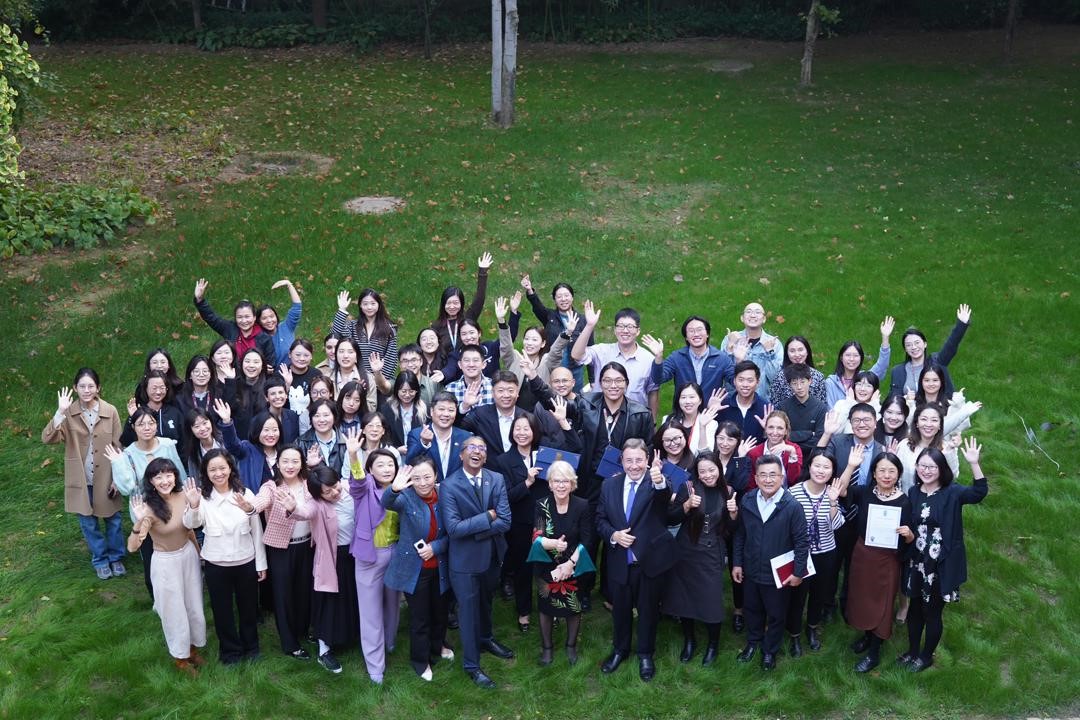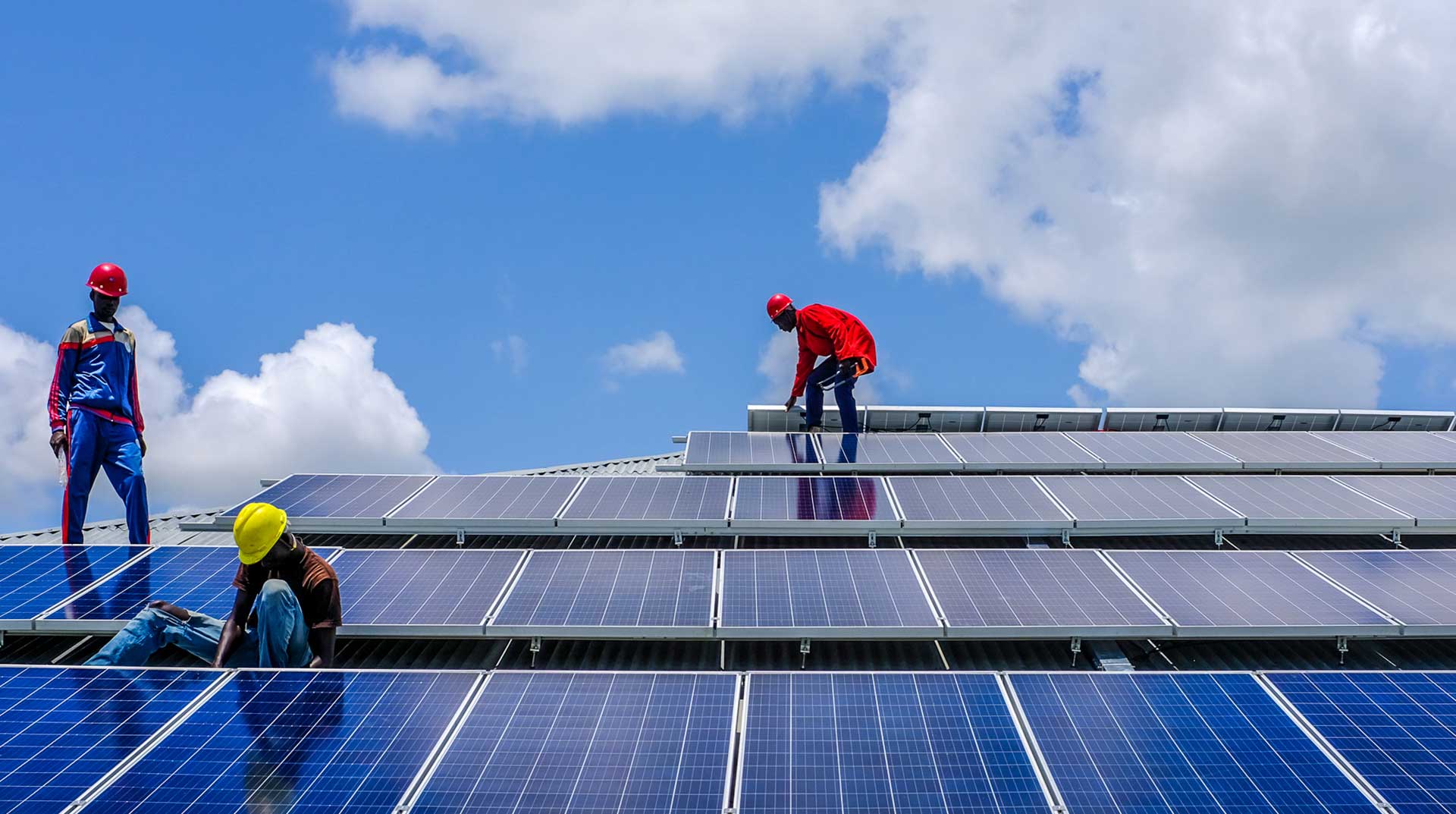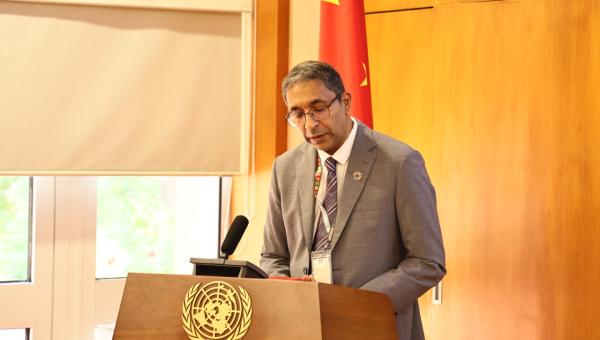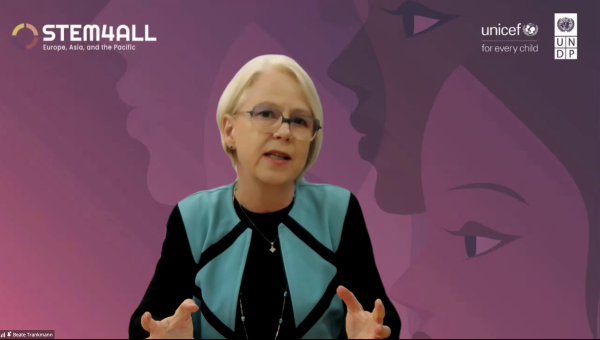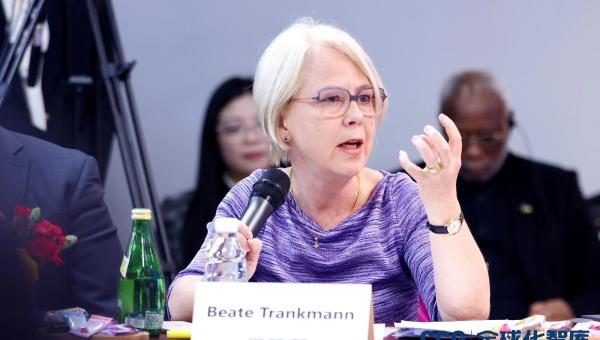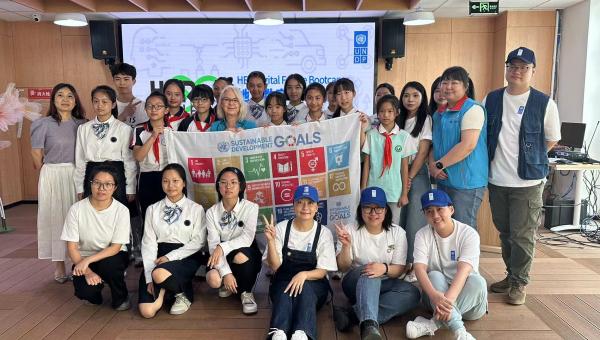Gender
Overview
Gender Equality and Women’s Empowerment in China
Along with rapid economic growth and development over the past decades, China has also seen significant social development. From 1990 to 2019, China’s Human Development Index (HDI) value increased by 52.5 percent from 0.499 (low) to 0.761 (high) – making it one of the few countries to have moved from ‘low’ to ‘high’ on the index. During this time, much progress has been made on gender equality and women’s empowerment (GEWE). From 1995 to 2020, the HDI values for Chinese women increased from 0.522 to 0.744. Additionally, in 2020, China’s Gender Development Index (GDI) value rose to 0.957, an increase from 0.912 in 1995, indicating that gaps between women and men are narrowing in education, health and command over economic resources.
Important achievements have also been made in legislation, policy, and other key areas that impact GEWE in China. As a signatory to the Convention on the Elimination of All Forms of Discrimination against Women (CEDAW) in 1979, China has developed a series of measures, legal frameworks and programmes to improve the social status of women and promote their equal rights and opportunities. Since 1995, the Chinese government has initiated its first multi-year national programme for the development of women, specifying national strategies and an action plan to advance women’s rights and interests in areas including economic participation, women's participation in decision making and management, education, health and legislation.
Looking ahead, there remain areas where GEWE need to be further promoted in China, including equal pay and employment, women’s representation in the green economy and tech sectors, addressing COVID-19’s economic impact on women, equal access to productive resources and services, women’s participation in climate action and local governance, equal distribution of caring responsibilities and social norms on gender roles.
Recognizing that GEWE is integral to meeting all 17 Sustainable Development Goals (SDGs), UNDP China is committed to ensuring that its development efforts target and empower women and girls while addressing structural barriers to gender inequality. Over the more than four decades of its presence in China, UNDP has been dedicated to supporting ethnic minority women in remote rural areas as both a priority target group and important actors in alleviating poverty. UNDP is also training and positioning women across the country to actively participate in the new green economy, including renewable energy and tech, as well as empowering women to make a positive contribution to local governance.
UNDP also aims to integrate a gender perspective into all areas of its policy advocacy and programmes. Currently, UNDP supports 16 gender-responsive projects that improve climate-adaptive and environmentally sustainable livelihoods for women in China, with financing from the Global Environment Facility (GEF).

In Depth
How UNDP is strengthening gender equality and women’s empowerment in China
Across China, UNDP is working to enable, empower and encourage women to play a critical role in sustainable development, in areas ranging from governance and decision-making to rural entrepreneurship, renewable energy and the fast-growing tech sector. To strengthen women’s representation in local governance structures, 127 female officials and CSO representatives In Neixiang County gained improved community governance skills in 2021, after UNDP training.
Additionally, UNDP supports women from China’s ethnic minorities in developing new livelihood skills, while preserving their diverse cultures. For example, 1,504 women in Yanchuan County, Shaanxi Province, were able to increase their incomes after being trained to produce commercialised patchwork textiles, generating RMB 1.95 million (USD 290,000) in revenues for the women in this county. A further 120 minority female embroiderers in Chuxiong County, Yunnan Province, benefited from UNDP’s entrepreneurship and employment development programmes, providing alternative livelihood opportunities, as well as conserving their unique heritage.
UNDP also facilitated female entrepreneurship in China to advance the SDGs. This followed comprehensive training and support for start-ups led by young women in China through incubation courses and seed-funding mobilization. Additionally, 761 female entrepreneurs in Anhui Province gained access to financial services, after UNDP partnered with UNCDF and Xin’An Bank in researching and assessing credit models, to better inform the design of financial products for more inclusive lending.
UNDP also helps to guide more women in China towards male-dominated fields, including renewable energy, the tech sector and science, so that women can be empowered to contribute to and lead in the green transition and jobs of the future. This includes helping around 4,000 women to improve their technical skills and gain employment in the fuel cell sector in 2021, enabling more women to contribute to a sustainable tomorrow.
To inspire more women to enter the technology field, UNDP jointly launched the #HERstory #WomenInTech campaign together with UN Women on International Women's Day 2021. Profiling multiple top female and male leaders from tech companies such as Microsoft and academic institutions inside and outside China, the campaign’s inspirational stories and messages received 73 million impressions on social media.
In 2022, the campaign turned its attention to #GirlsinScience. Together with UN Women, UNESCO, UN Geneva, and the China Woman’s Association for Science and Technology, UNDP helped to inspire more girls to pursue science careers by connecting them with leading female scientists – including Wang Yaping, a top astronaut and the first Chinese woman to complete a spacewalk. Around 1000 kids, mostly from remote and rural areas in China participated in the campaign, with a further 100 million views on social media.
Gender Equality Seal
Gender Equality is not only at the center of what UNDP does, but also how it is being done. Apart from the commitment of generating greater gender results, UNDP also aims to create a more inclusive working place and build a strong gender architecture. For the last decade, UNDP has been walking the talk through its innovative UNDP Gender Equality Seal Programme, a corporate certification process helping country offices to build institutional consensus and operational clarity on gender mainstreaming, enabling stronger gender-responsive programming and accelerating changes needed to support gender equality goals in how we operate.
In 2021, 85 UNDP country offices, including UNDP China, voluntarily joined the 2021-2023 Round of Gender Equality Seal Certification. The China office developed an action plan following a baseline assessment, to improve our organizational capacity and allow for stronger gender results. As part of the action plan, UNDP in China has been stepping up efforts to incorporate a gender lens into all project stages. As of 2024, at least 79 percent of project funding promotes gender equality and women’s empowerment. In addition, UNDP in China has been working to further increase inclusion and diversity in its workplace, including leadership for gender equality, in-house gender capacities and gender-responsive human resources management.
Explore More

 Locations
Locations
